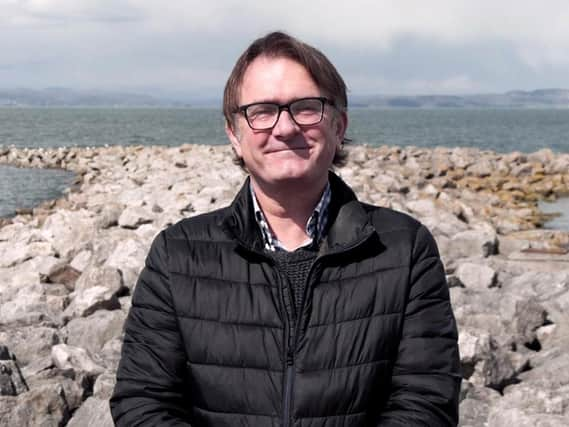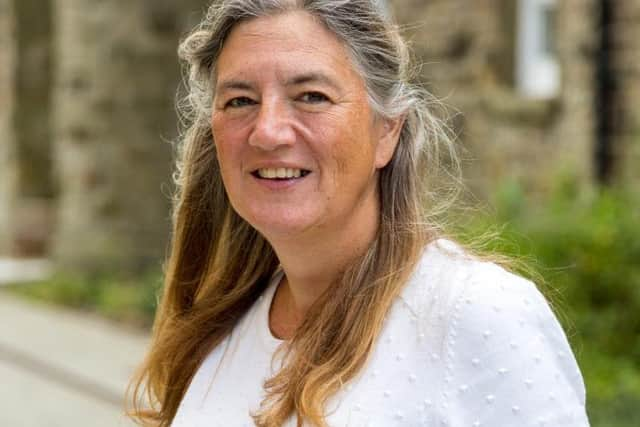Teacher training supports unique ‘place-based’ curriculum inspired by Eden Project North plans for Morecambe


Tapping into the learning potential of the landscape and life around Morecambe Bay, student teachers will be inspired to embrace the opportunities the immediate environment offers.
Through this PGCE (Postgraduate Certificate in Education) course, student teachers will also foster a love for enquiry-based outdoor learning and creatively consider how such experiences will have a lasting impact on the lives of future generations.
Advertisement
Hide AdAdvertisement
Hide AdThe PGCE General Primary with QTS: Environmental and Experiential Learning route to becoming a trained teacher has been designed in collaboration with school, college, university and education partners in the north west that are supporting the new Morecambe Bay Curriculum, created and developed by Prof Robert Barratt, of Lancaster University.


Inspired by plans for Eden Project North, the Morecambe Bay Curriculum aims to empower and equip children and young people to look after themselves and the planet, tackling local and global issues in responsible and sustainable ways.
Based on the United Nations Sustainable Development Goals (SDG), the curriculum seeks to engage with educational settings and support learning from birth to postgraduate forms of study, including apprenticeships.
In 2020, the University of Cumbria was recognised in the Times Higher Education Impact Rankings, the world’s only global performance tables assessing universities’ impact against the UN’s SDGs.
Advertisement
Hide AdAdvertisement
Hide AdIt was ranked in the top 10 institutions worldwide and first in the UK for Quality Education SDG, which measures universities’ contribution to early years and lifelong learning, their pedagogy, research and their commitment to inclusive education.


University of Cumbria senior lecturer Chris Barlow, who leads the new PGCE programme, said: “This new PGCE specialism is a celebration of our own intimate relationship with this unique place and its community.
“It offers student teachers the opportunity to use the local environment of Morecambe Bay as a learning lens to explore concepts, themes and philosophies related to place-based experiential learning that will form the basis of the truly rewarding career they will enjoy.
“This approach nurtures a deeper, richer understanding of and care for Morecambe Bay, through which our young people will develop the knowledge and skills needed to pursue their dreams and ambitions and make an active contribution to the community.”
Advertisement
Hide AdAdvertisement
Hide AdJan Ashbridge, principal lecturer at the Institute of Education, University of Cumbria, said: “Not only recognised as one of the largest teacher training providers in the UK, the University of Cumbria is well placed to support the development of the Morecambe Bay Curriculum because it is an anchor institution for the region with campuses situated across Cumbria and Lancashire.


“The Institute of Education is proud of its established links with thousands of education partners and schools across the country, reflecting the university’s mission to work with employers to retain and attract future talent to the region, develop a highly-skilled workforce, and offer learners new flexible and diverse ways to study.”
Linda Pye, headteacher of Ryelands Primary and Nursery School in Lancaster, said: “As a headteacher and chair of the Primary, EYFS and Special Schools Eden Working Group I am delighted by the potential that the new PGCE pathway brings to schools in the area.
“The Morecambe Bay Curriculum is innovative and inspirational; it raises aspirations, builds dreams and makes them a reality.
Advertisement
Hide AdAdvertisement
Hide Ad“Our teachers will become increasingly experienced and skilled in using the unique place where we live for children to learn and this in turn will positively affect social, economic and environmental change. All teachers want to make a difference - this pathway will be a superb first step on that professional journey.”


Morecambe Bay Curriculum creator Prof Robert Barratt said: “The planetary emergency is at the centre of this PGCE course. Training teachers will be working with children and young people on projects that are fundamental to our future survival.”
The new PGCE pathway is among a portfolio of undergraduate, postgraduate and continued professional development courses offered at the University of Cumbria’s Institute of Education.
Further details are available online here or by calling 0808 291 6738.